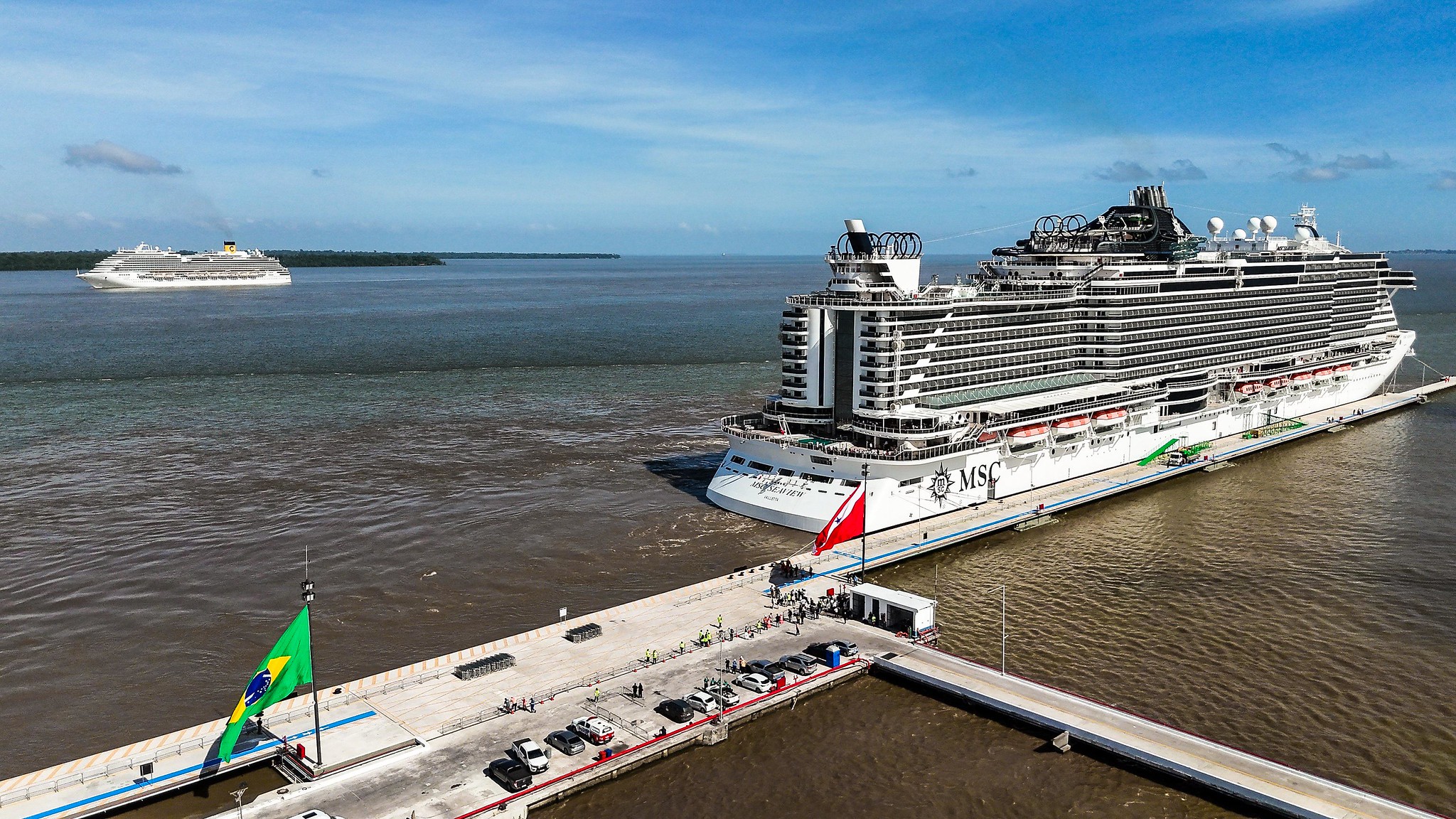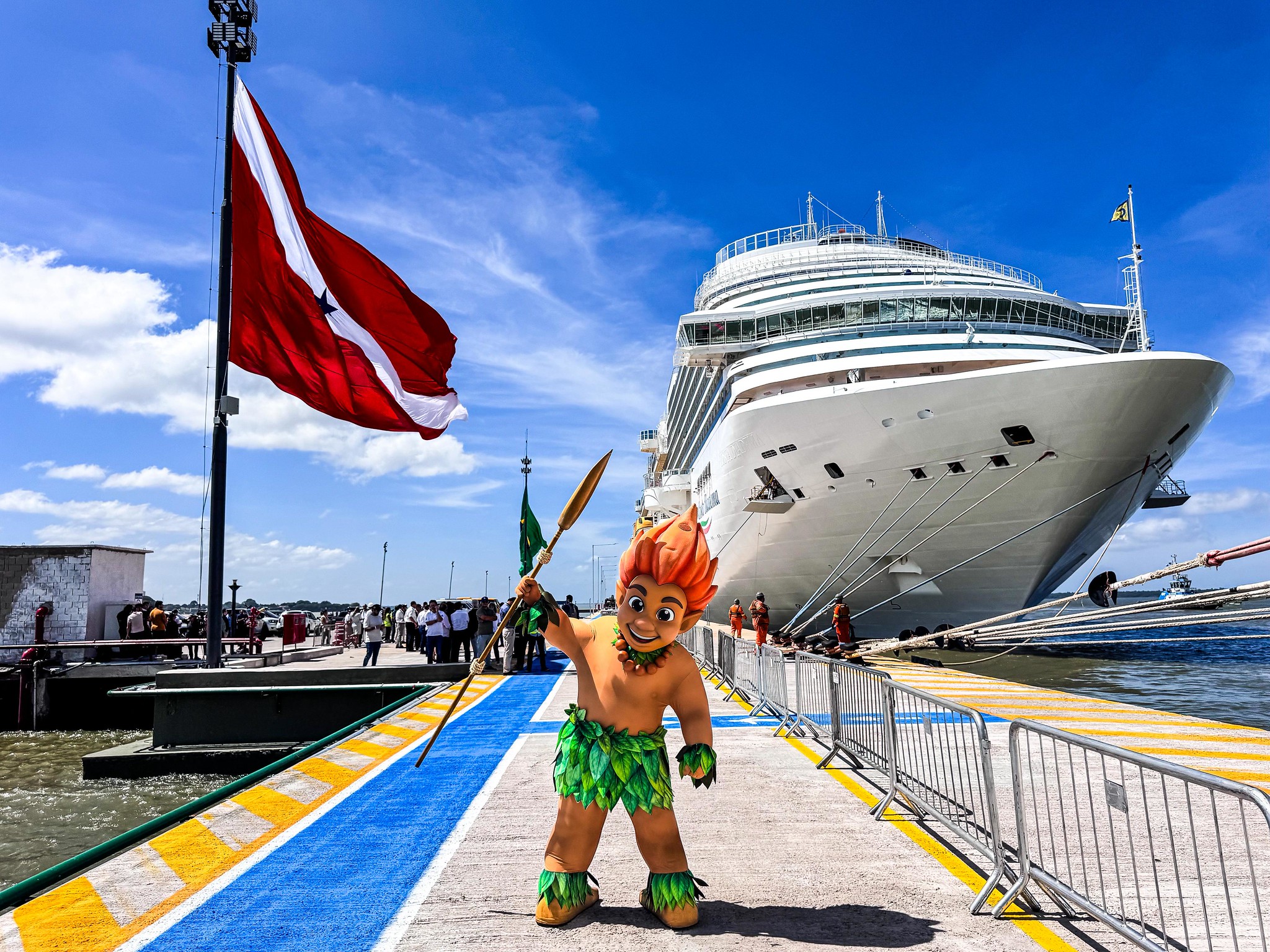Cruise Ships Arrive in Belém to Boost Accommodations for COP30
With investments of R$233 million in the requalification of the Outeiro Port, the terminal is ready to receive passengers starting Wednesday, November 5

By Maiva D’Auria/COP30
The two cruise ships that will serve as floating hotels for COP30 delegations and other participants arrived at the Port of Outeiro in Belém (PA) on Tuesday, November 4. Together, the vessels will offer around 6,000 beds. Guests will be able to check in starting Wednesday, November 5.
The chartering of the ships (MSC Seaview and Costa Diadema) is part of the federal government's strategy to expand lodging capacity in Belém during COP30. The goal is to ensure adequate and affordable accommodations for the thousands of conference participants, reinforcing Brazil’s commitment to an inclusive, sustainable, and successful COP.
The journey between the ships and Parque da Cidade, the venue for the conference, will take about 30 minutes. Transportation will be provided by official buses operating continuously and free of charge. Covering just under 20 km, the route includes dedicated BRT lanes and a newly inaugurated express bridge opened in October. Before the bridge was built, travel time was nearly double.
“I timed it, today the transit time from the COP30 venue to the Port of Outeiro was recorded at 33 minutes and 27 seconds, including arrival at the designated reception center. During the official conference period, this duration is expected to decrease further due to the exclusive allocation of the Expressway and BRT lanes for COP30 shuttle operations. This arrangement is anticipated to facilitate more efficient movement than that available to many attendees staying in conventional hotels or private accommodations,” stated Rui Costa, Minister of the Civil House.

Port Terminal
To ensure the capacity to receive both cruise ships, the Port Terminal of Outeiro underwent a comprehensive renovation. Approximately R$233 million were invested through Itaipu Binacional. The project included the construction of 11 mooring dolphins, installation of 10 metal gangways, and the expansion of the pier from 261 meters to 716 meters, now capable of handling up to 80,000 tons—double its previous capacity.
The works, executed by Companhia Docas do Pará (CDP), also feature a modern reception area equipped with passenger support infrastructure, including embarkation and disembarkation zones, service counters, and X-ray screening equipment.
Initiated on April 17 of this year, the redevelopment of the Port of Outeiro was completed in approximately six months—a record timeframe for port infrastructure. To achieve this pace, the project was structured around simultaneous work fronts operating 24 hours a day in three rotating shifts with dedicated teams.
“In record time, we are delivering to Belém, to the state of Pará, and to Brazil a port that is ready and equipped to serve as a gateway for international tourism in the Amazon,” emphasized Jardel Rodrigues da Silva, President of CDP.
Minister Rui Costa emphasized that the delivery of the new infrastructure marks a milestone in the region’s development.
“This port will enable economic, social, and tourism development for the state of Pará and will increase cargo transport here in Belém. With this new infrastructure, the capital of Pará is now firmly placed on both national and international tourism routes. I have no doubt that this will bring a new economic dynamic and expand employment opportunities in the region,” he stated.
The expectation is that the new terminal will be integrated into regular maritime tourism routes, boosting the hospitality, gastronomy, transportation, and local commerce sectors.
“The Port of Outeiro will help transform the region and add significant tourism potential to a facility that previously operated solely for cargo. As a result, not only the surrounding area but the entire city and the broader Northern region will benefit from this new point on cruise itineraries,” celebrated Valter Correia, Special Secretary for COP30.
Translation: Michel Emmanuel Félix François (POET/UFC)
Proofreading: Tadeu Azevedo (POET/UFC)
